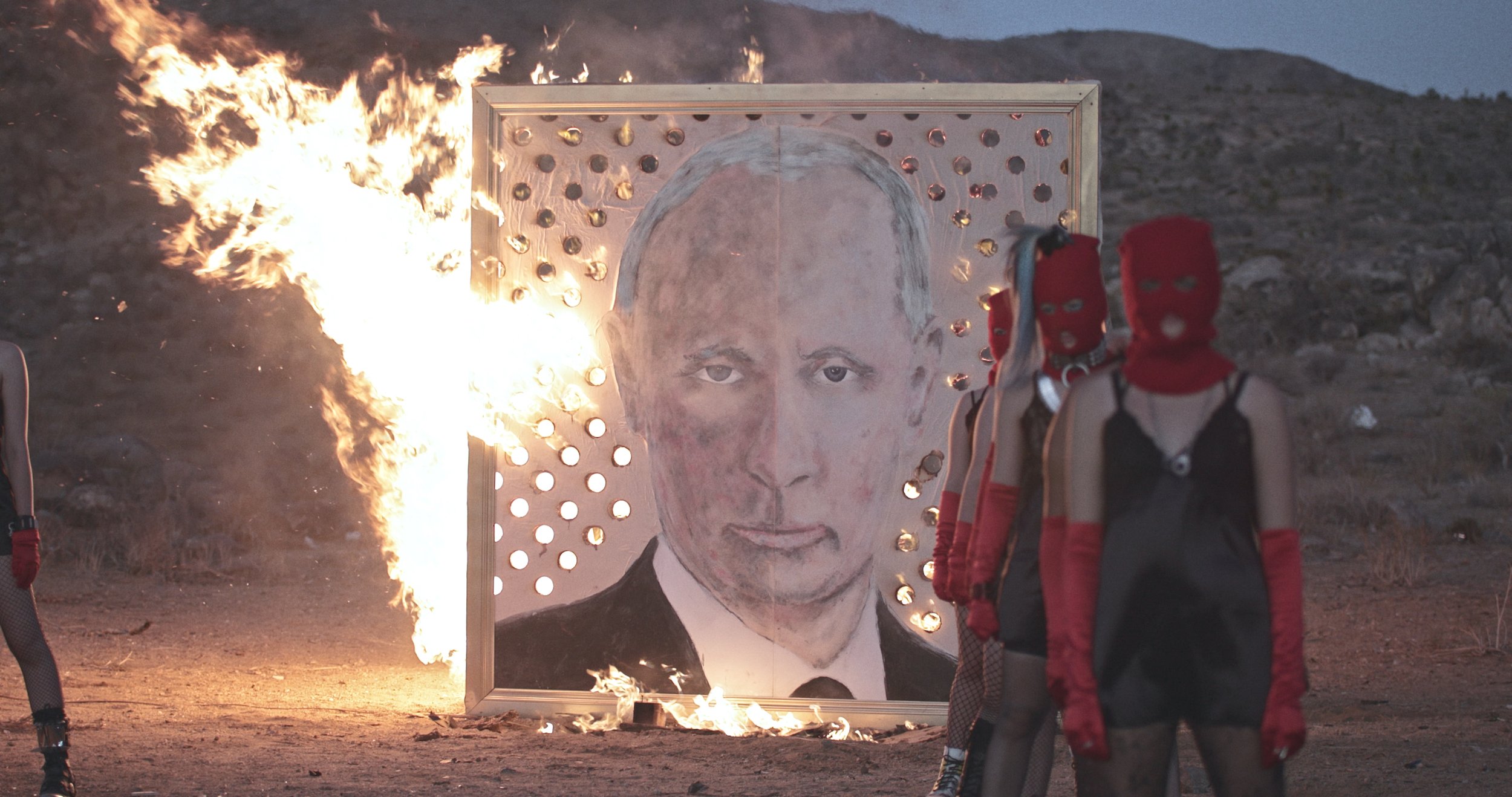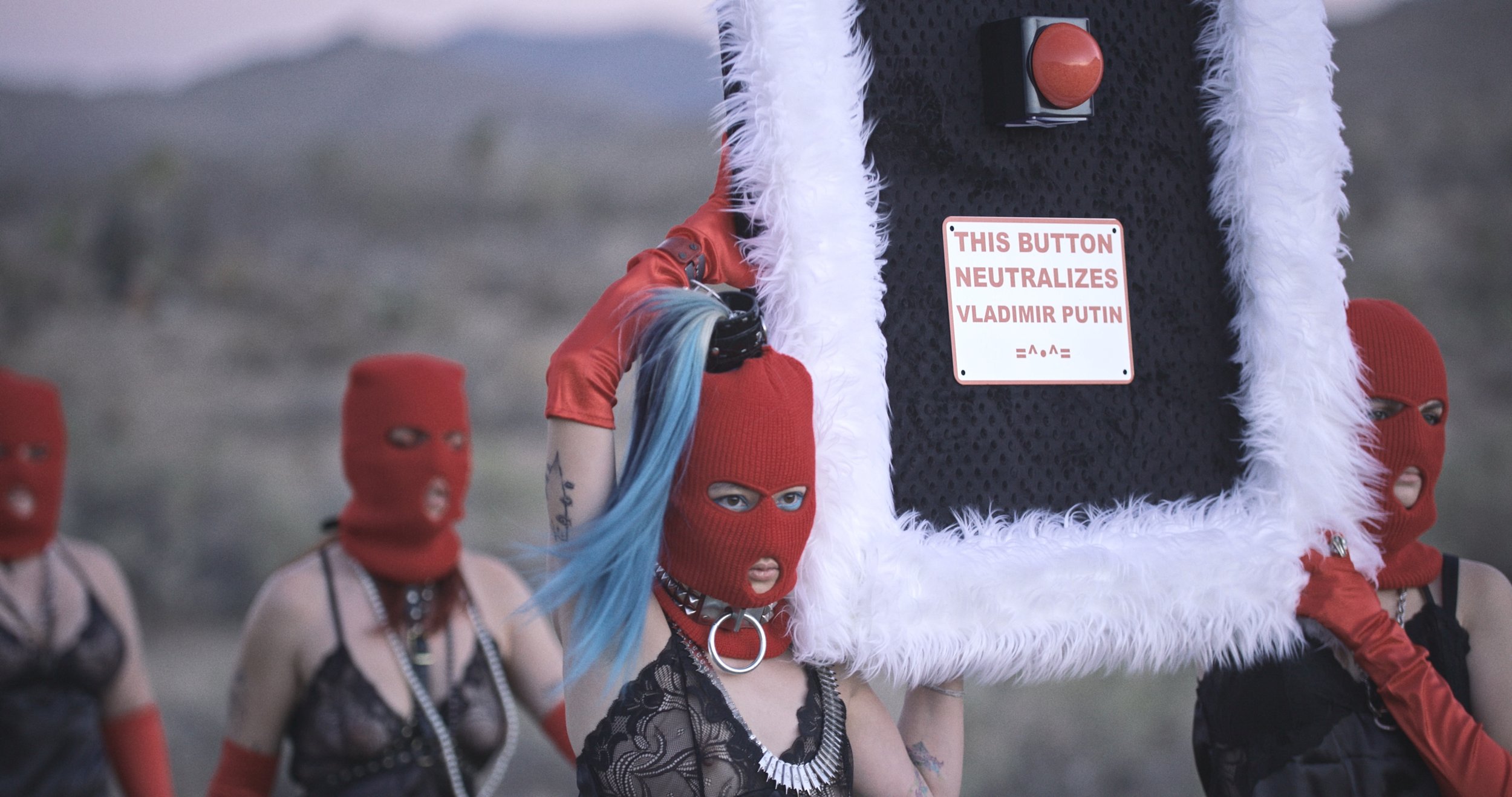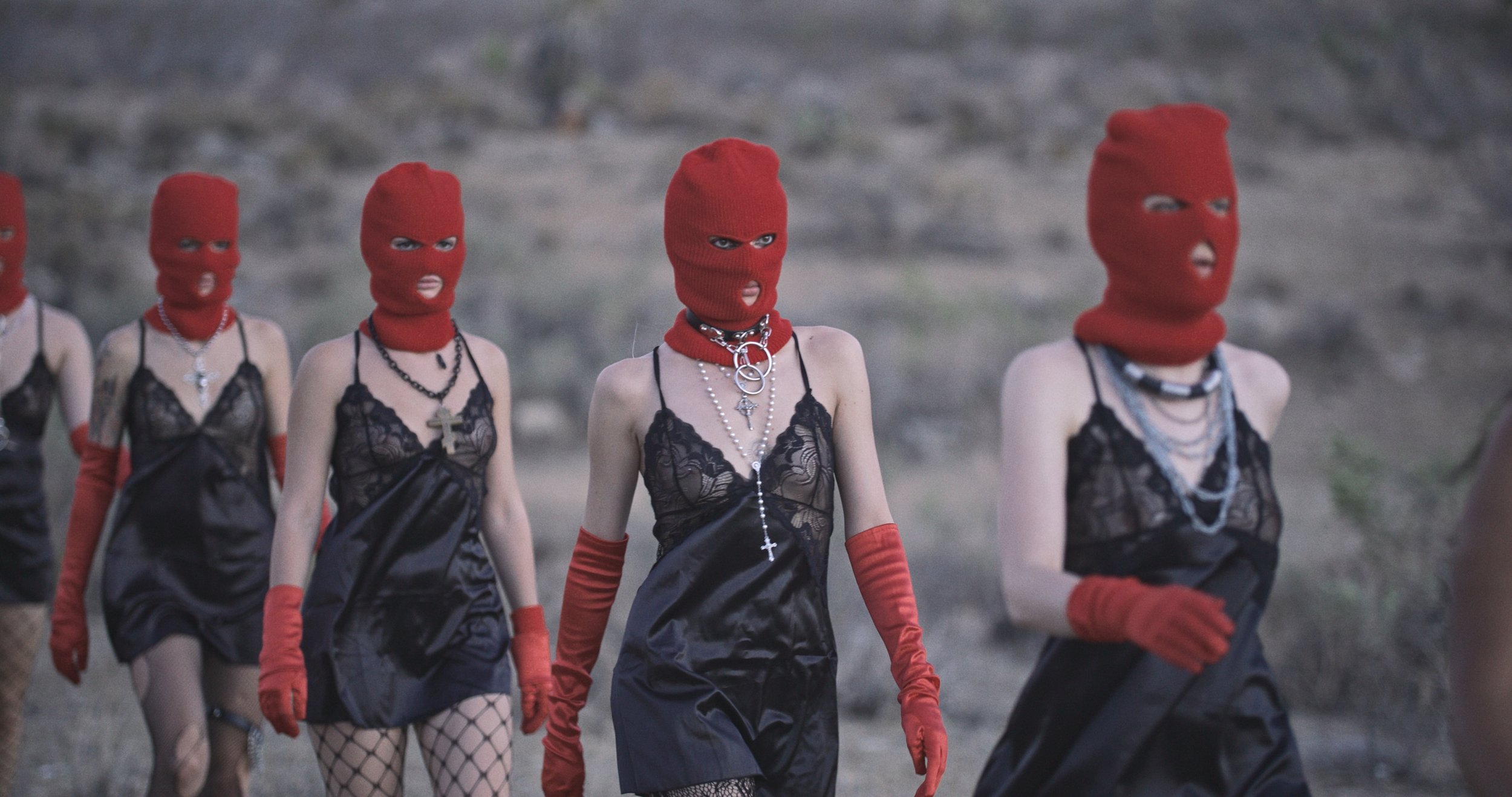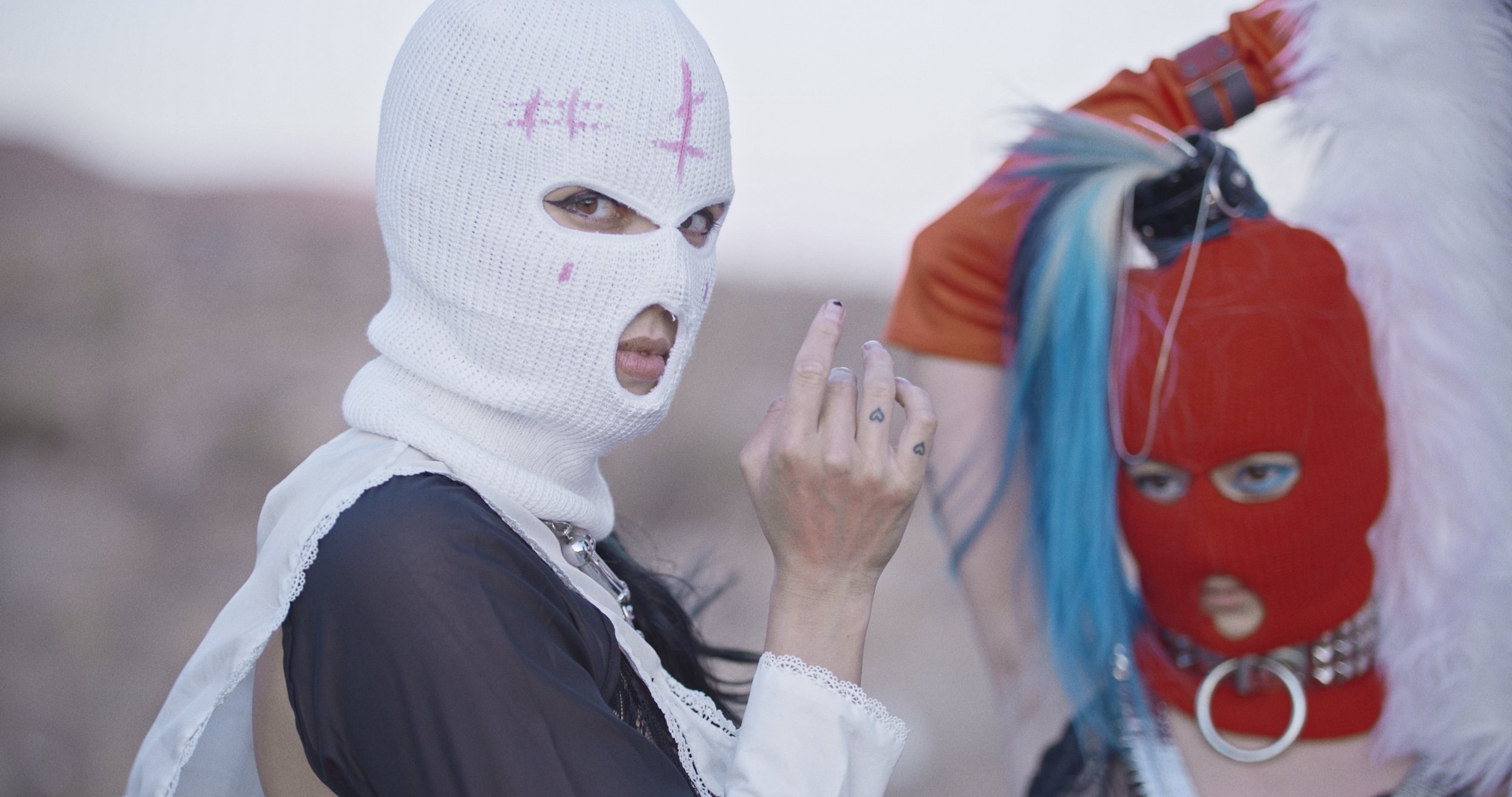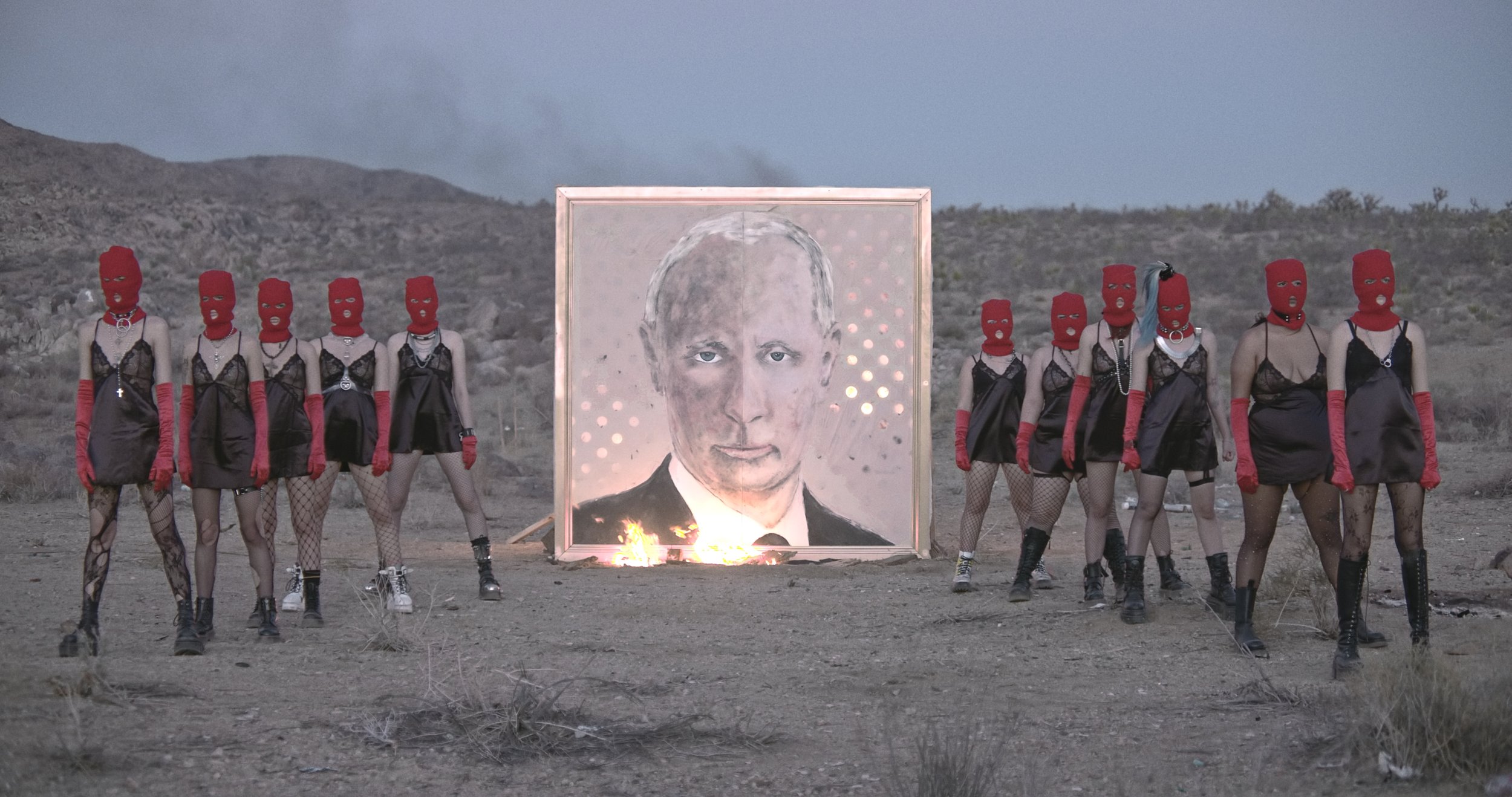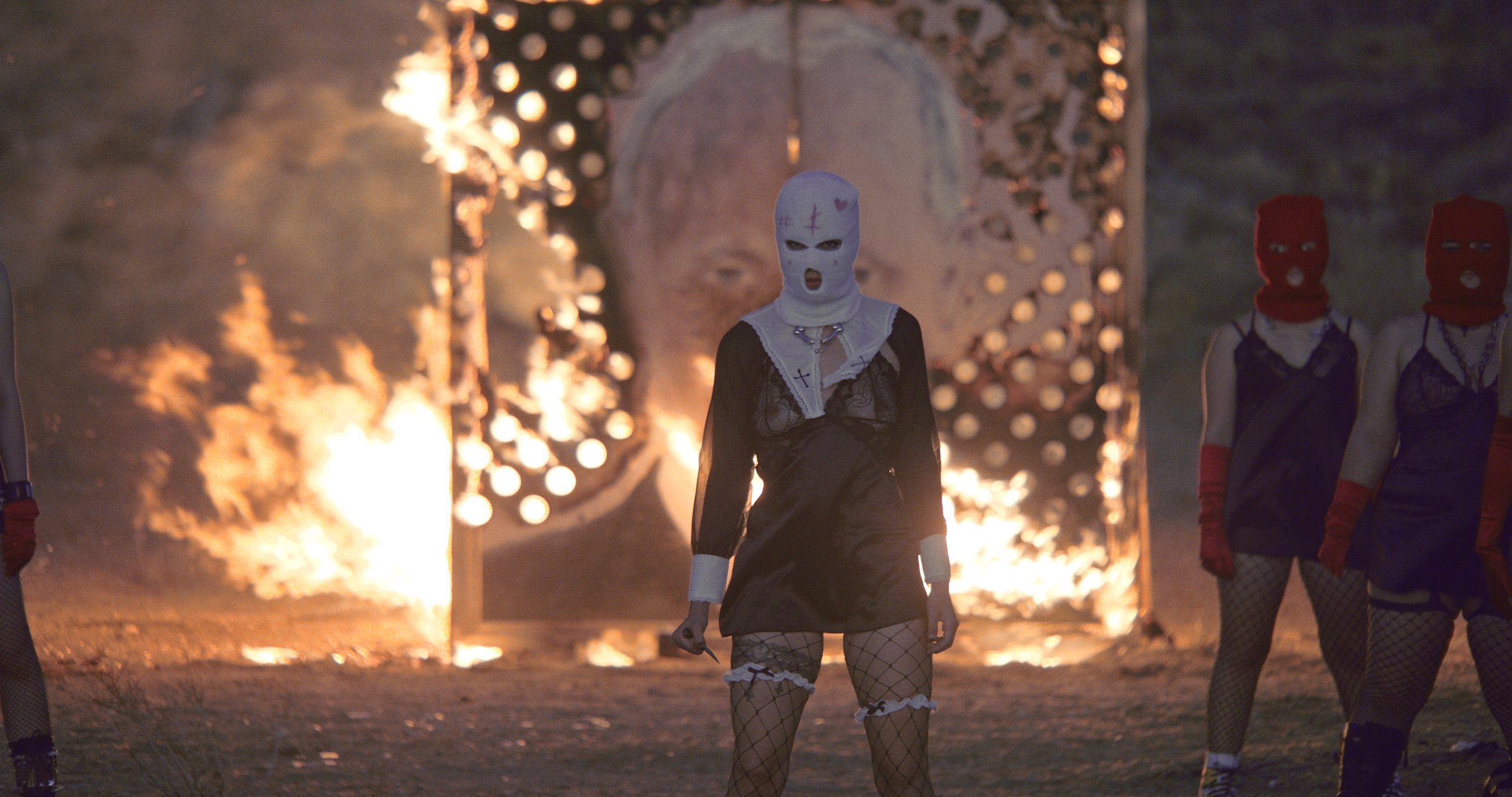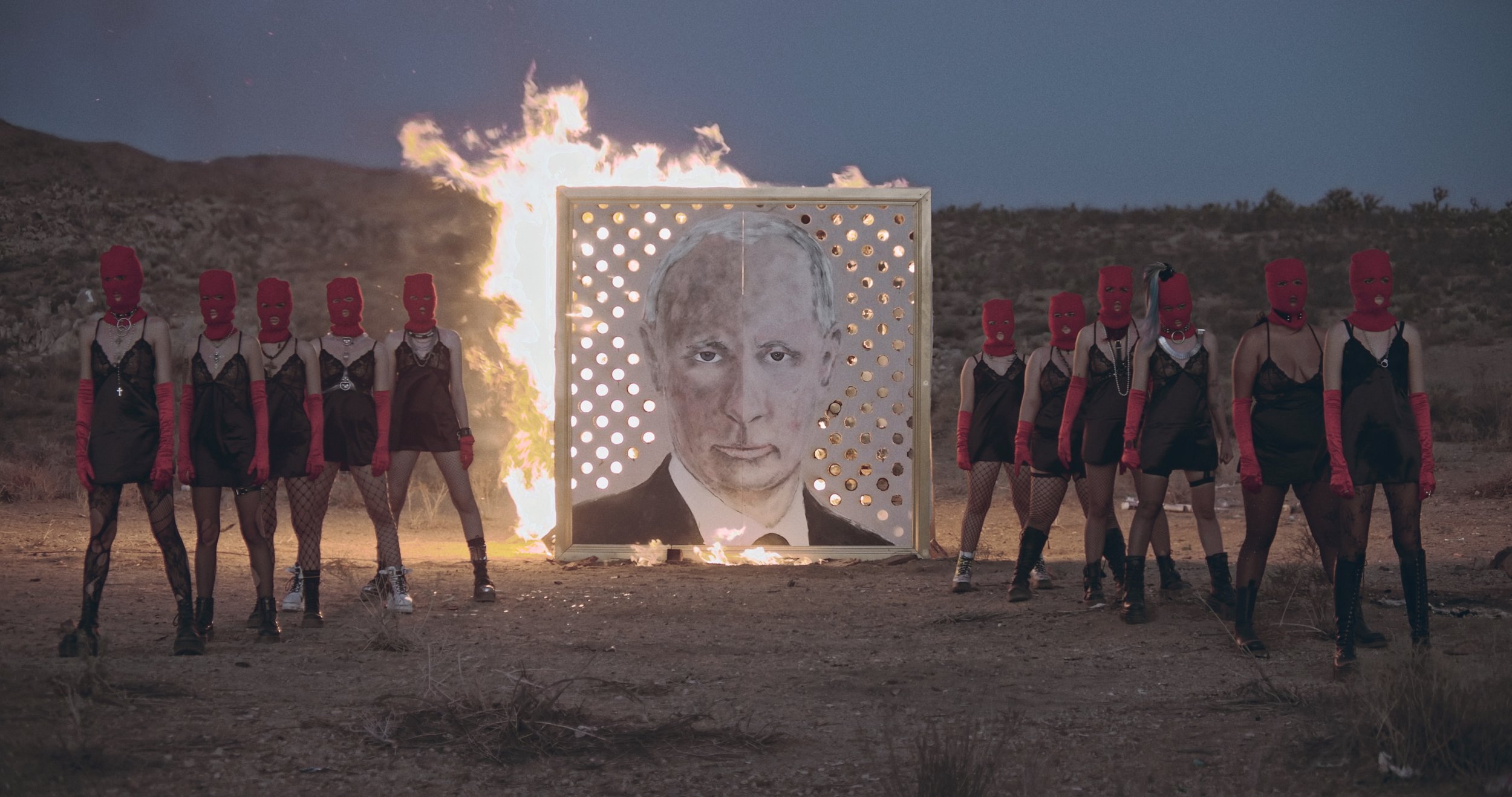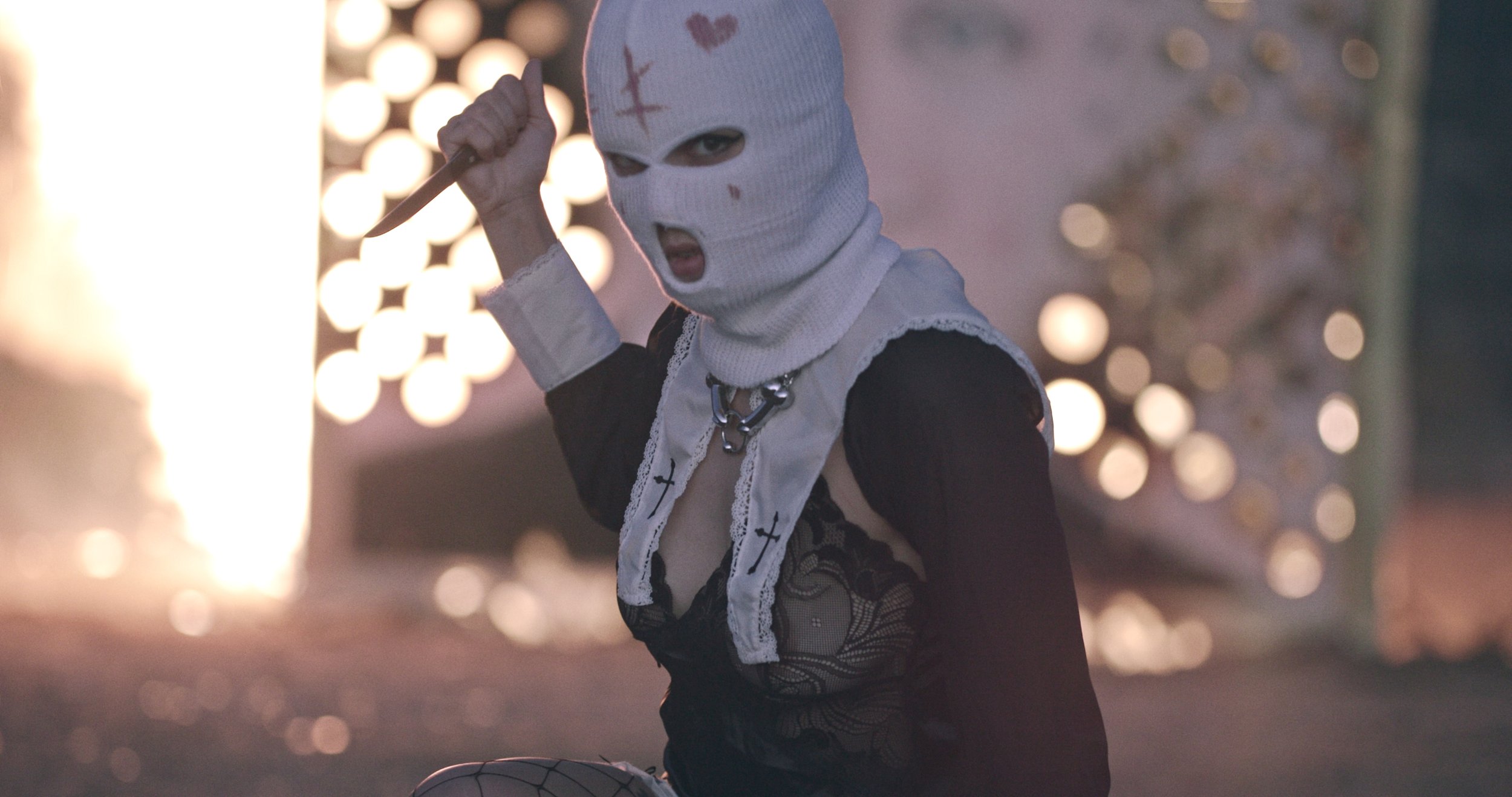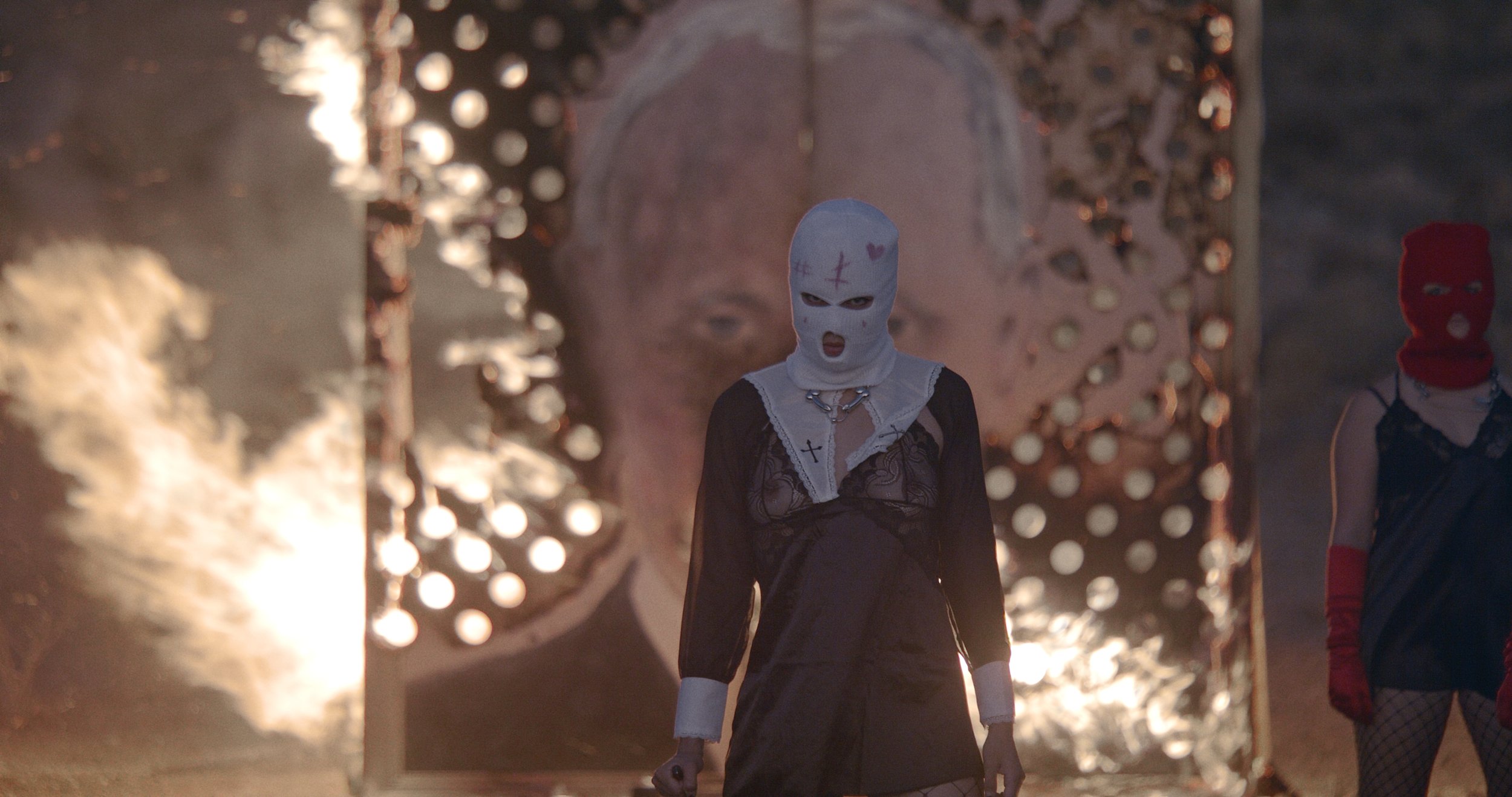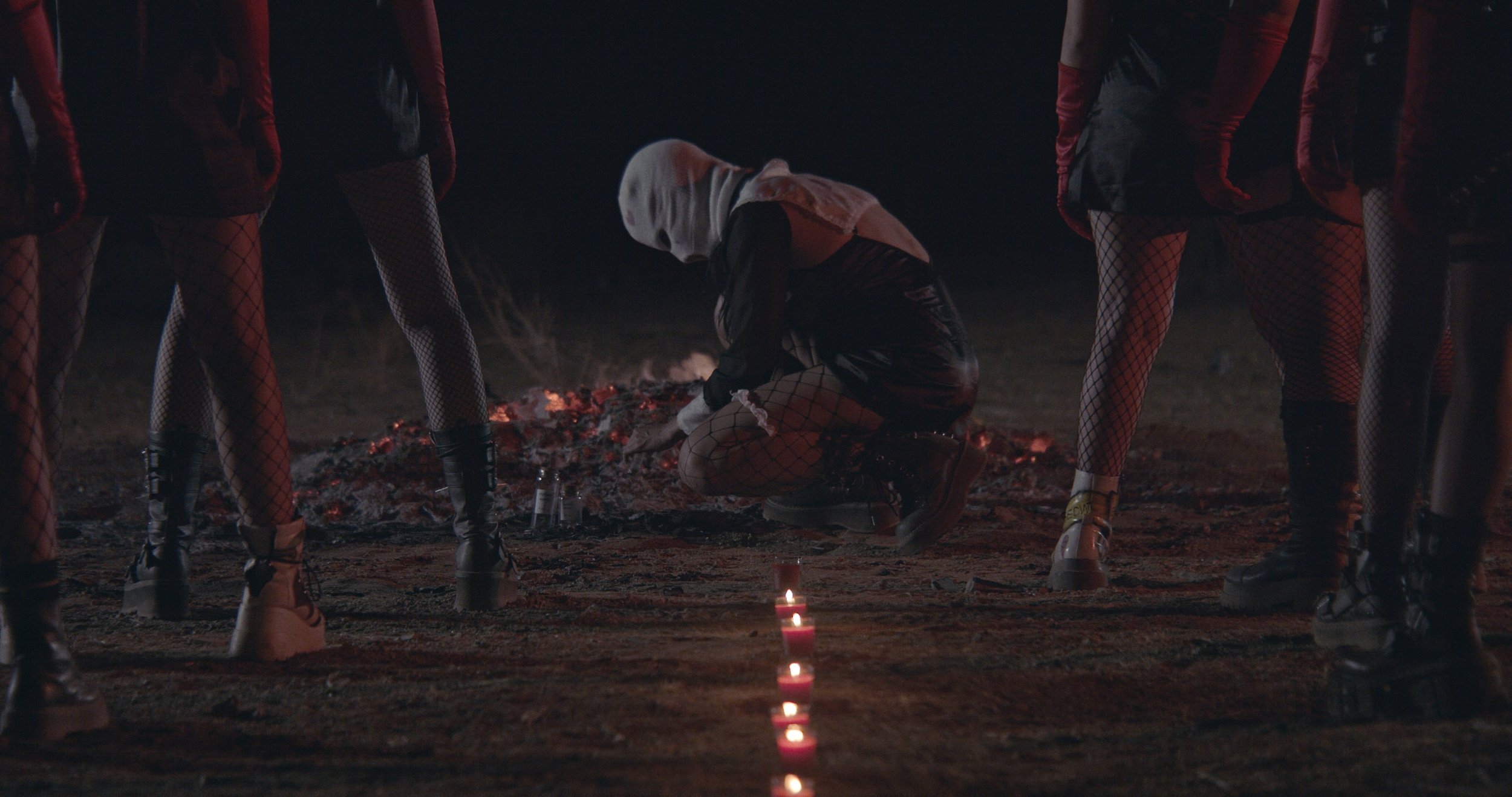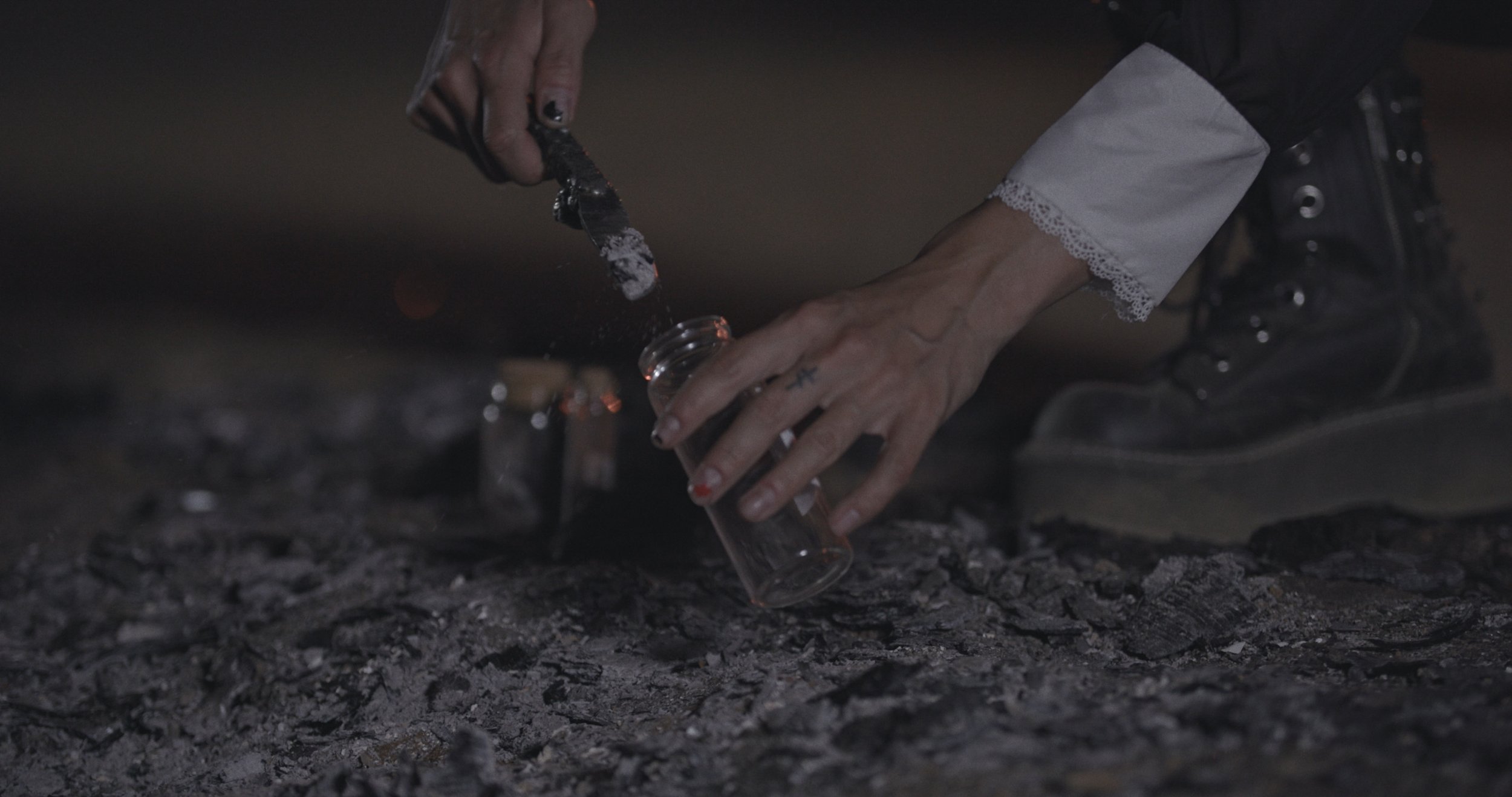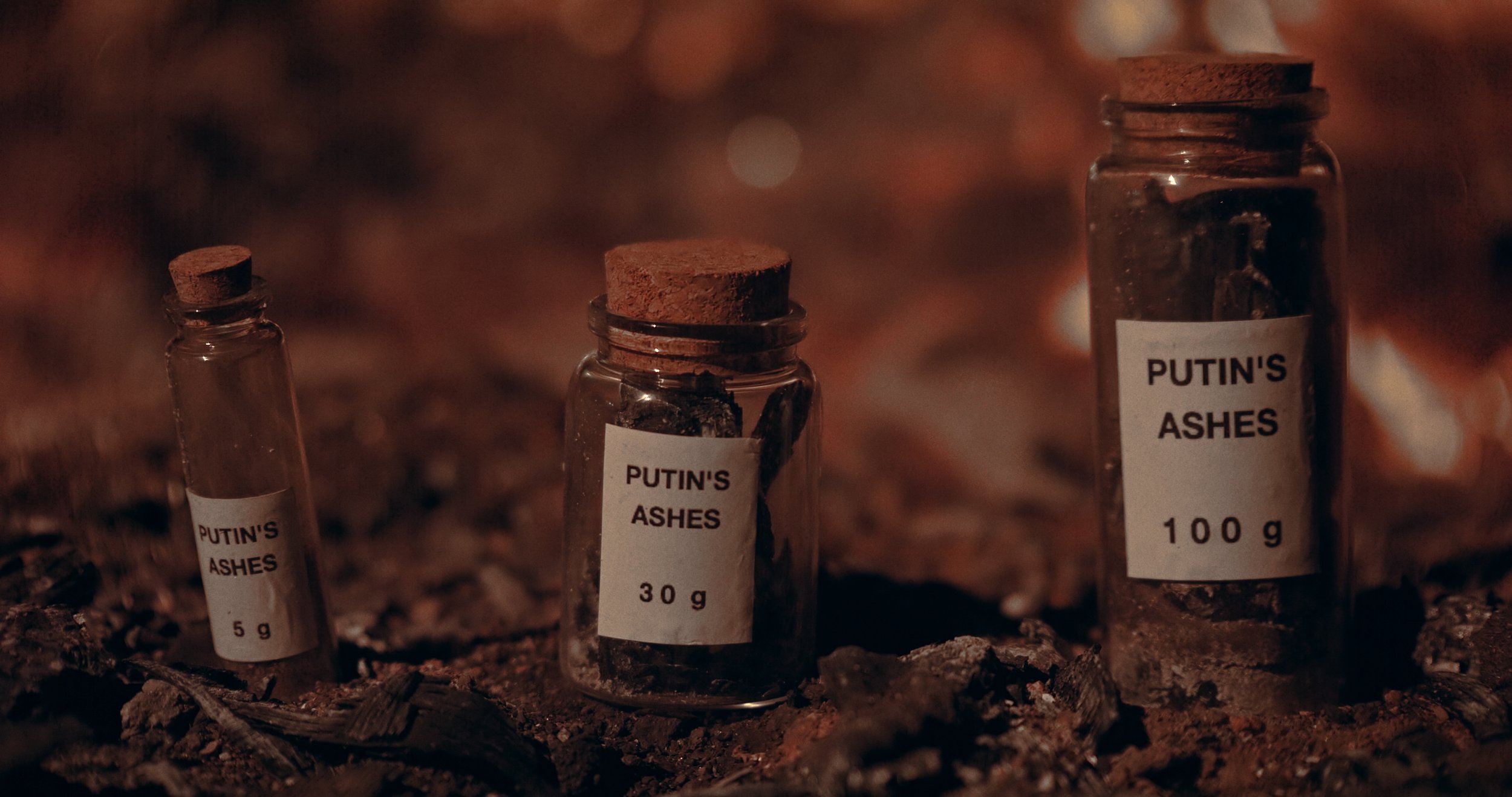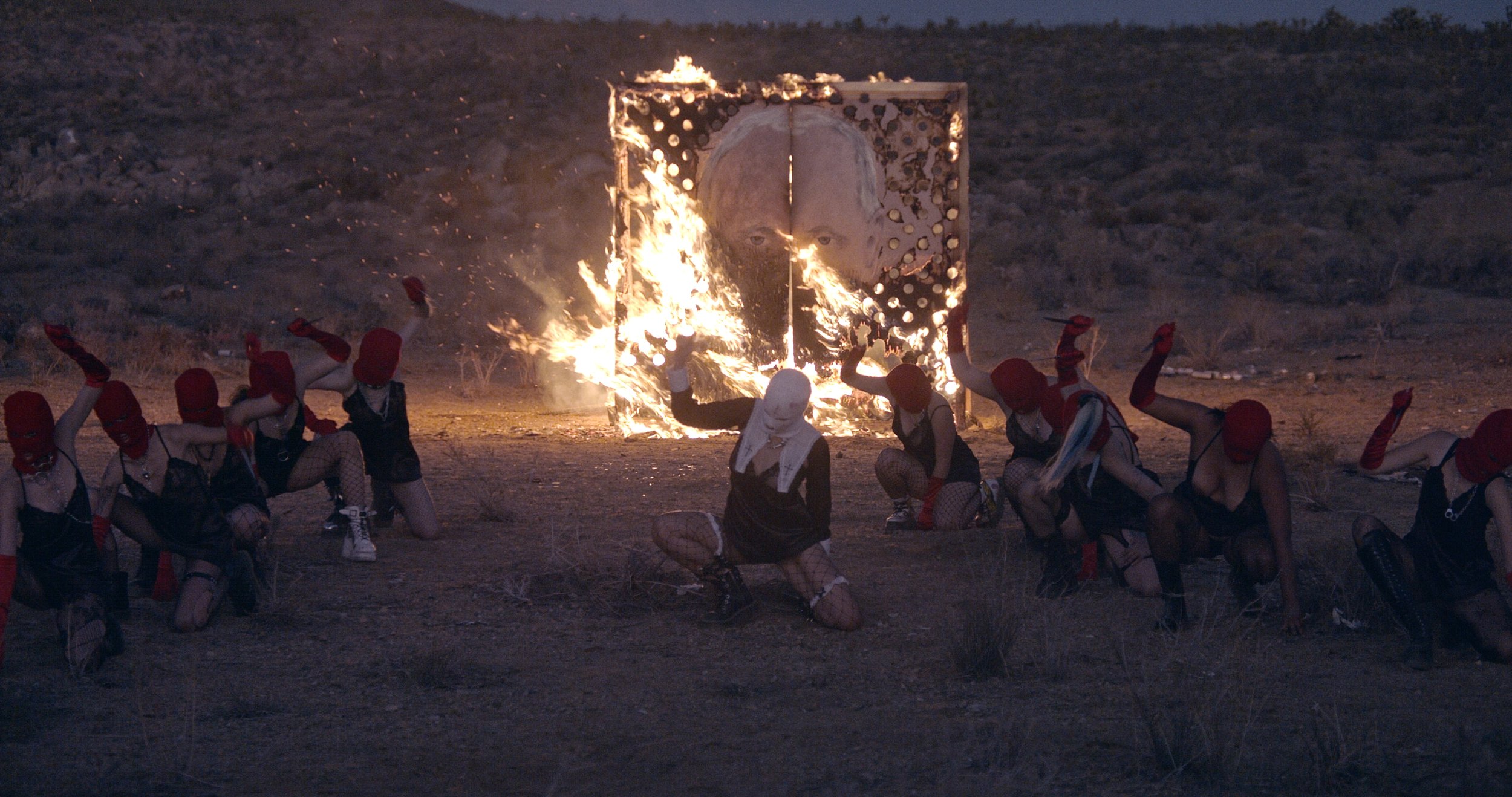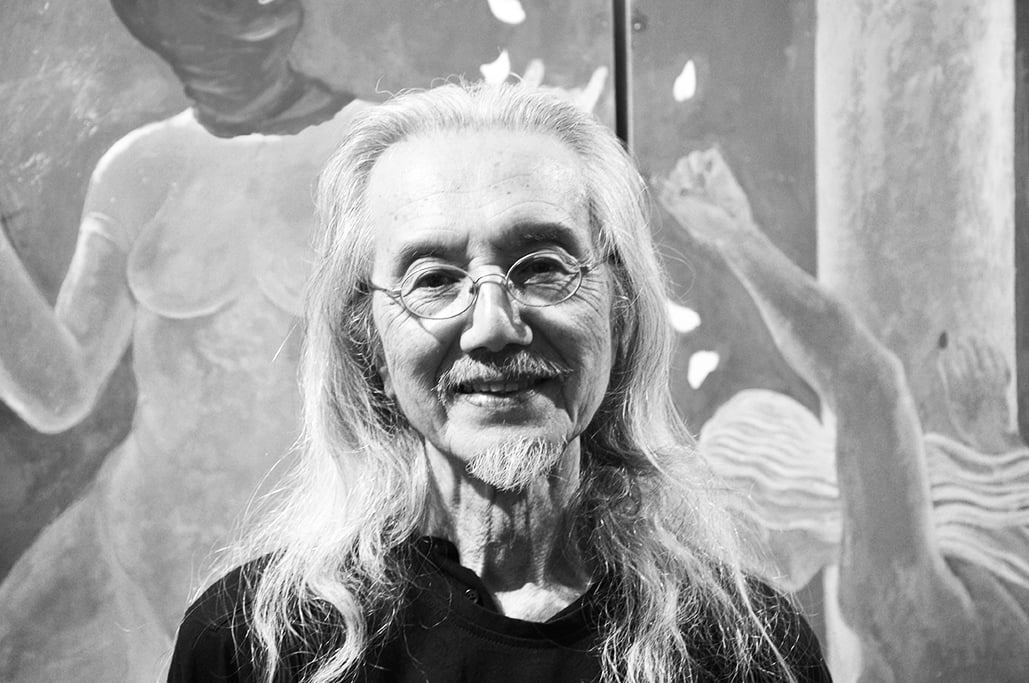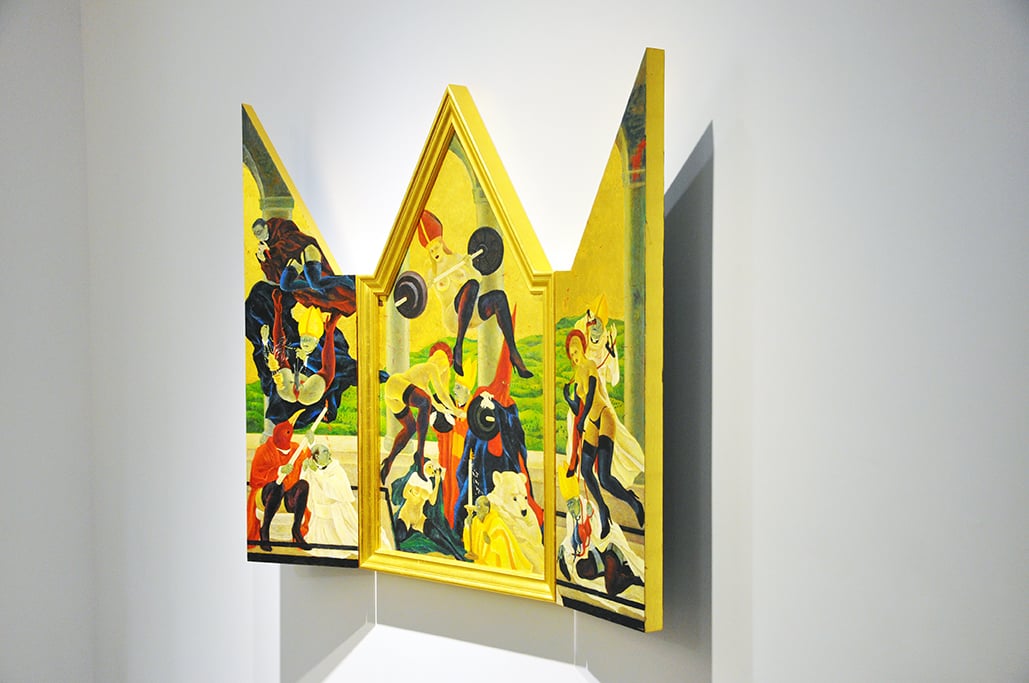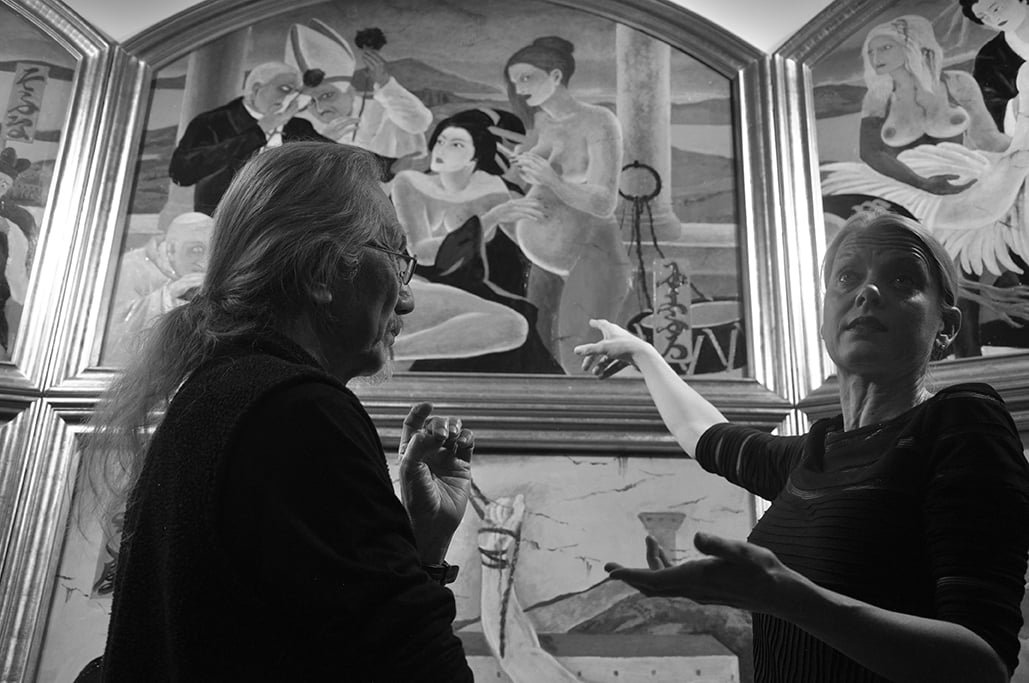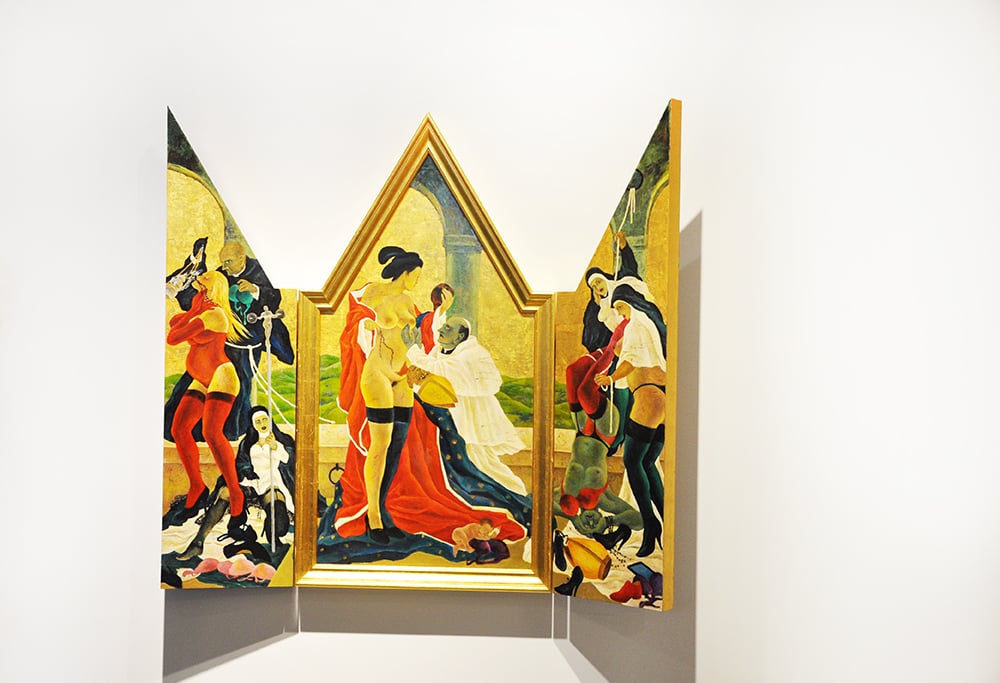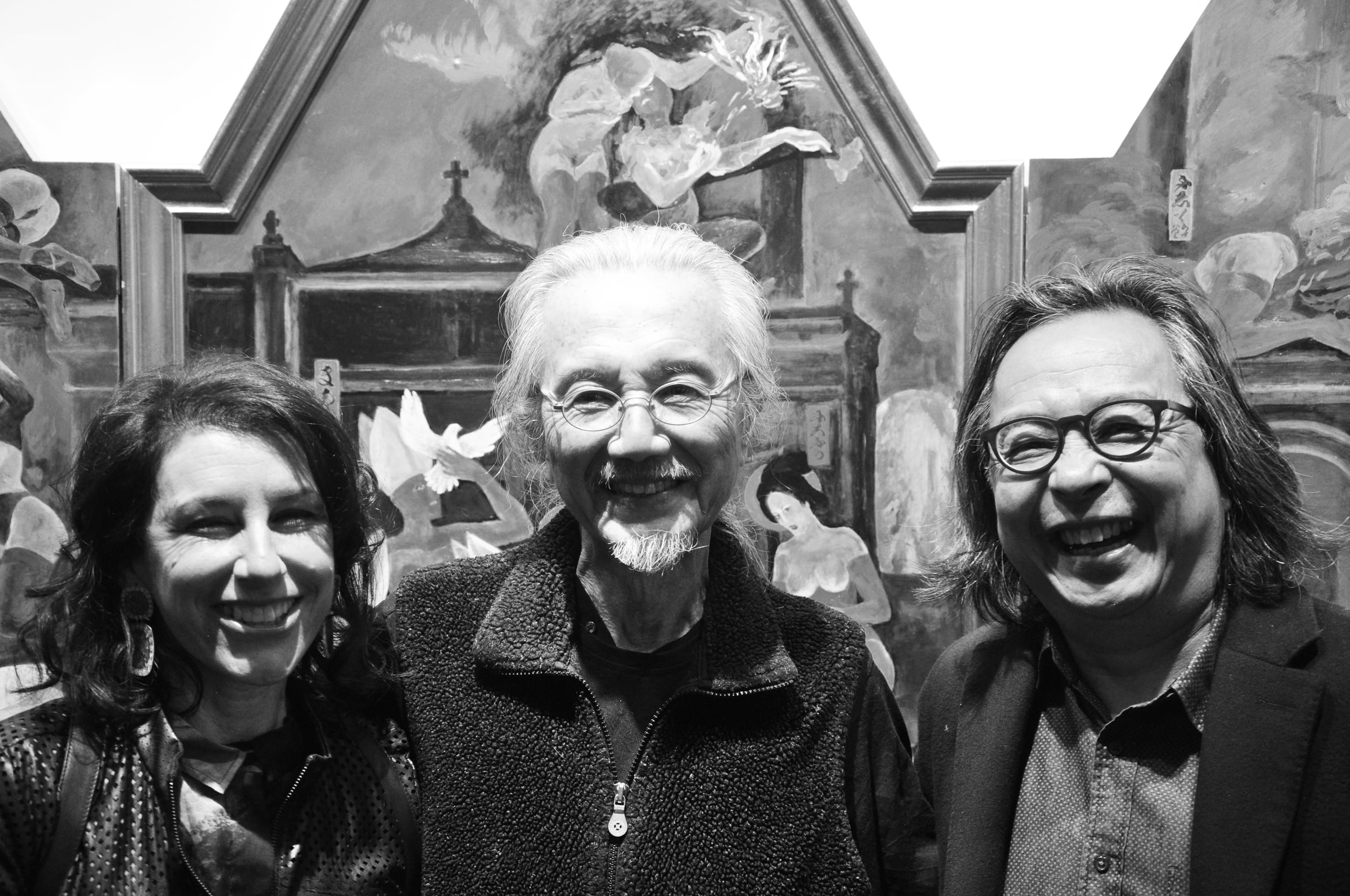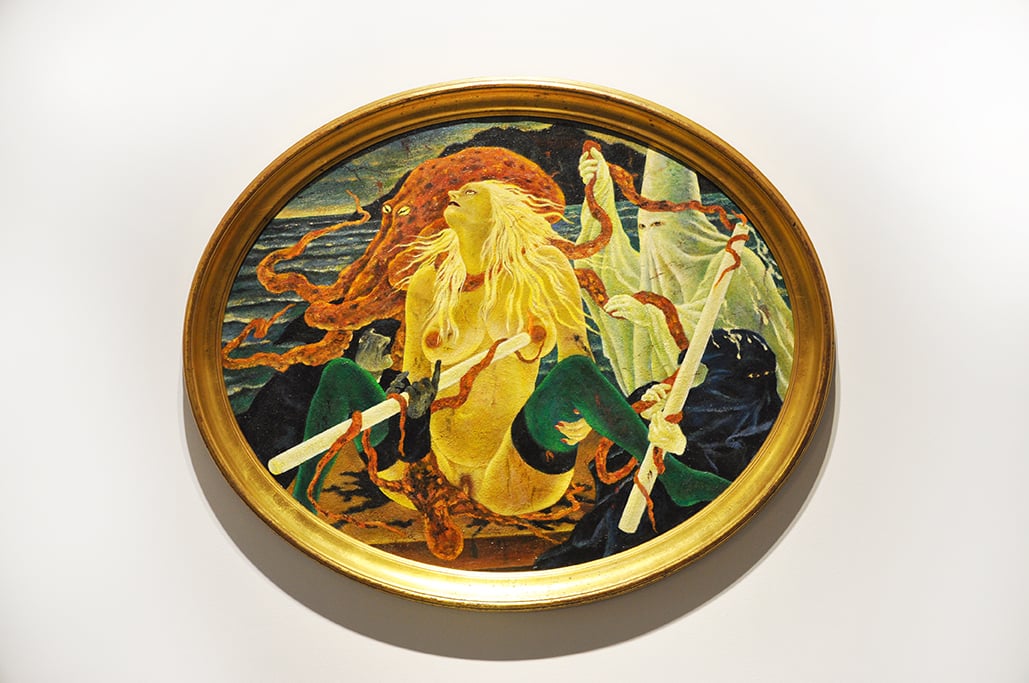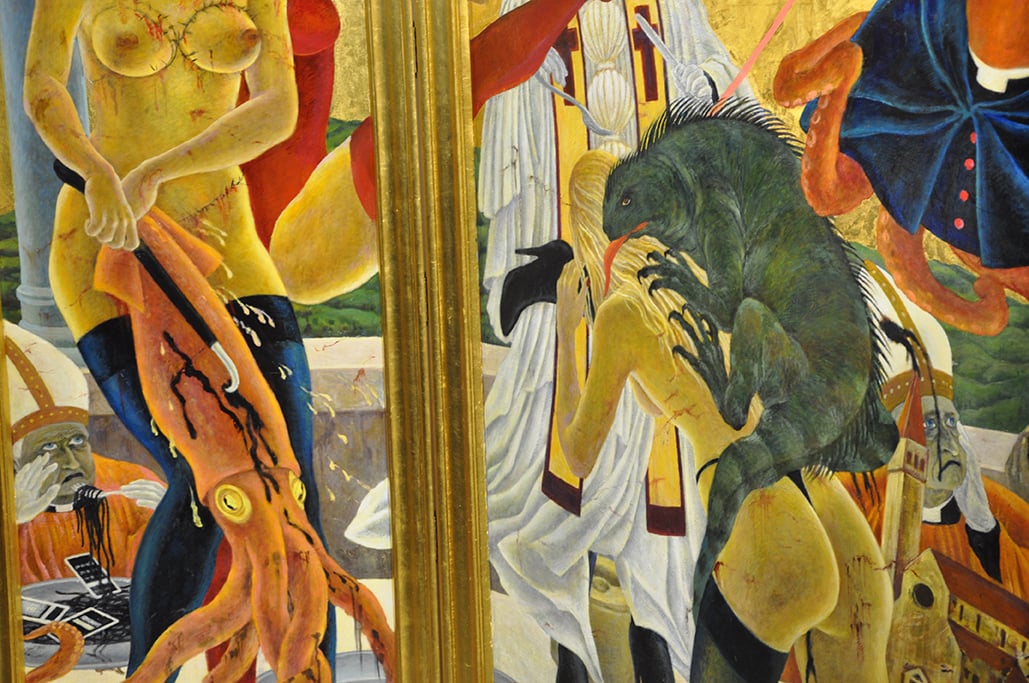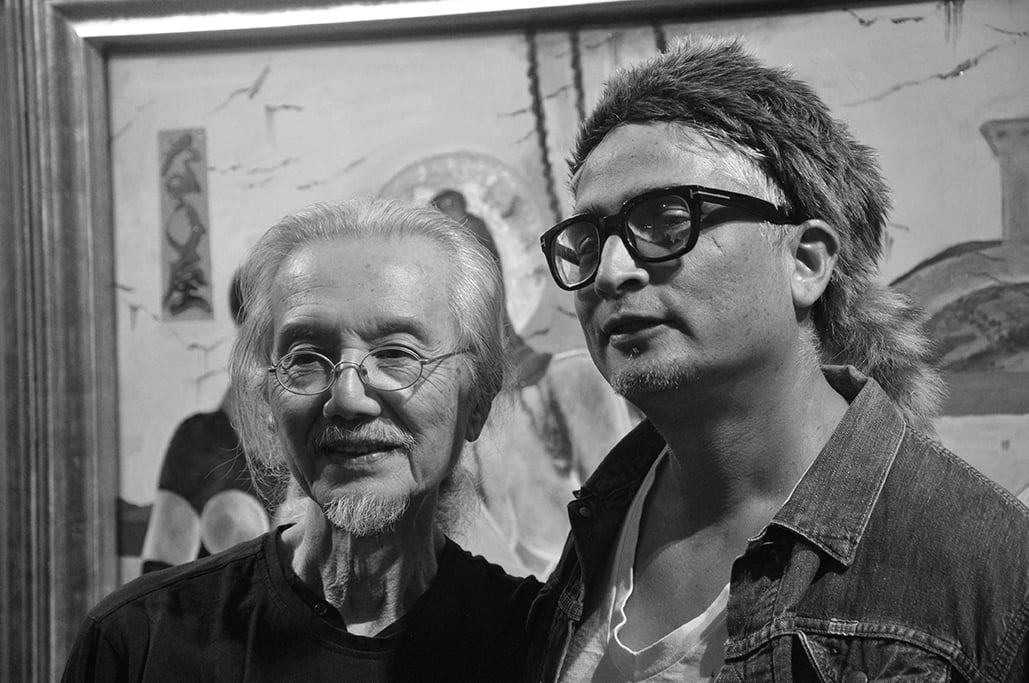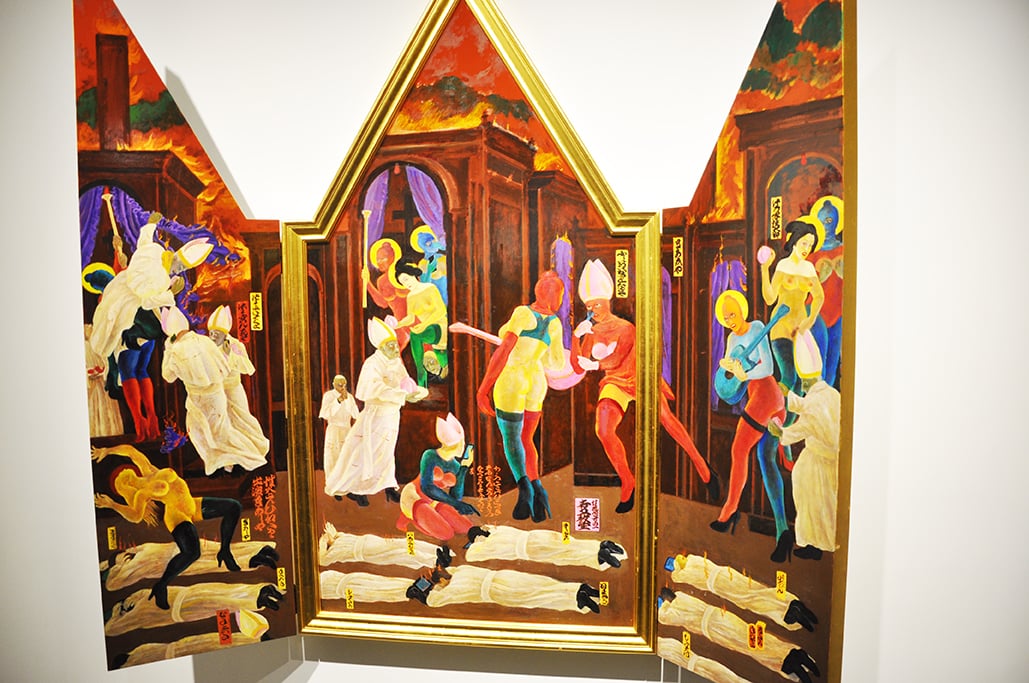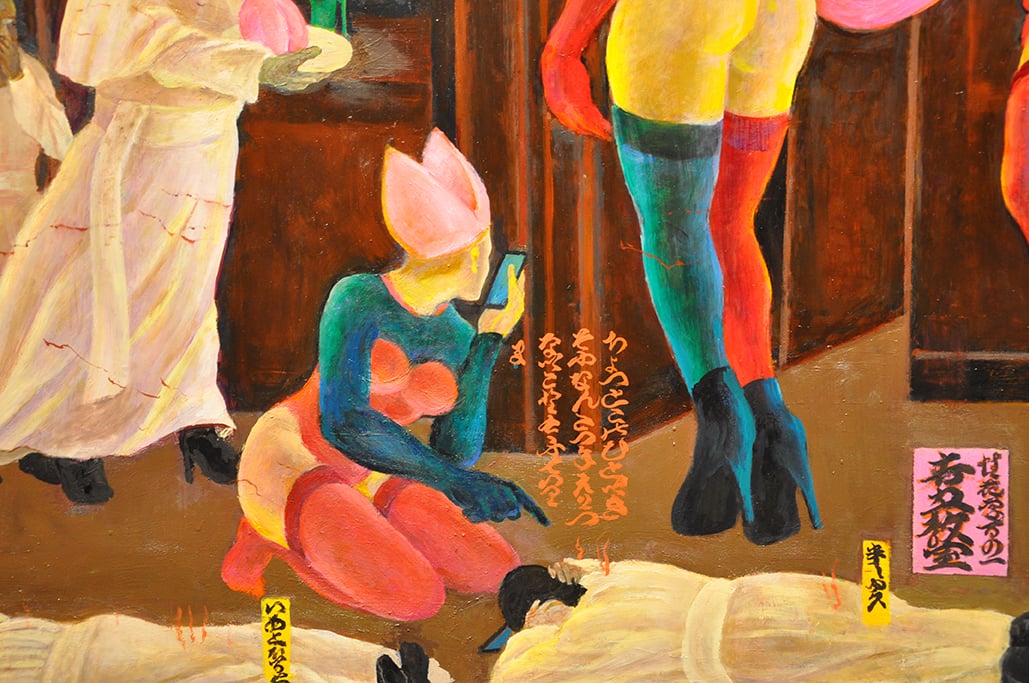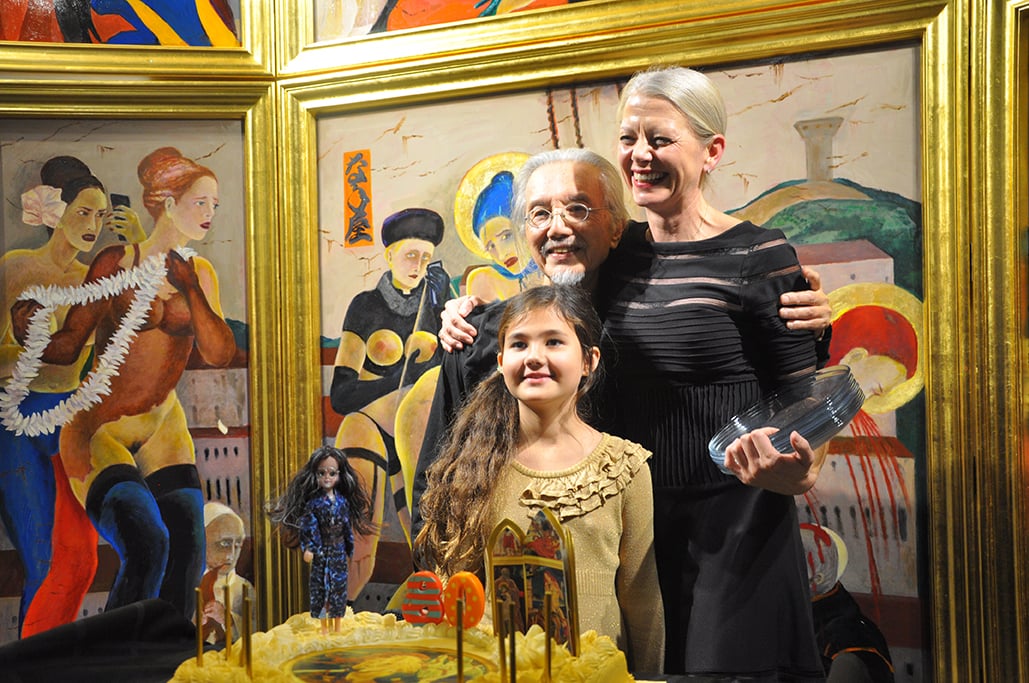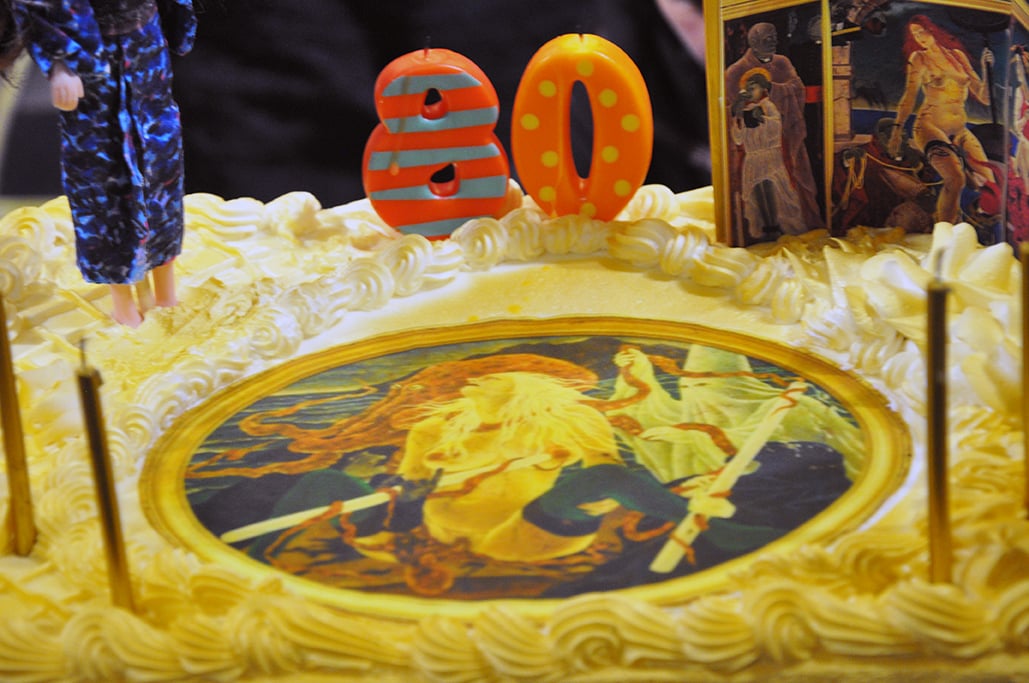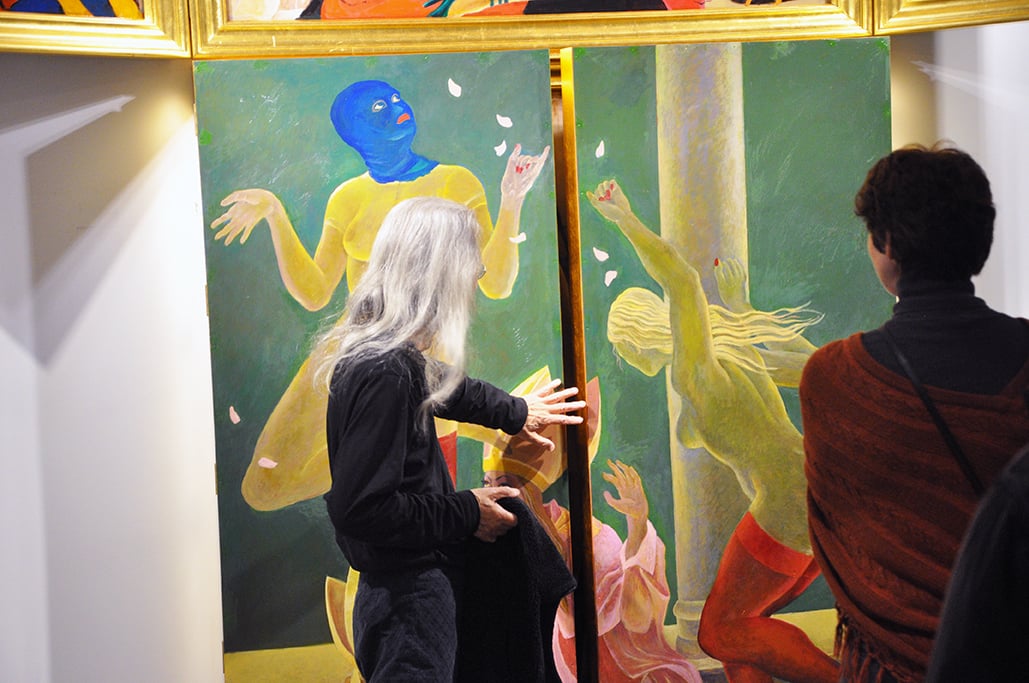text by Max Lawton
At dinner with Pussy Riot founder Nadya Tolokonnikova after a reading at UCLA, the famous Russian writer Vladimir Sorokin gets ready to make a toast––he loves making toasts. His toasts are often wry, slightly sarcastic, and metaphysical. They’re like little slogans drawn from his novels. But, getting ready to pronounce this one, he looks deadly serious.
He meets Nadya’s eyes and raises his broad-bulbed glass of Malbec:
“To a hero of our time!”
He takes a beat as glasses clink.
“I mean it Nadya… you’re a true hero of our time.”
Nadya looks touched. She thanks Vladimir in heartfelt fashion.
But Vladimir is also being a little bit funny. He does believe that Nadya is a hero of our time, he wouldn’t say it otherwise, but those precise words are, of course, a reference to the title of the classic Lermontov novel––a Romantic text about a doomed Russian soldier in Central Asia.
The meat of his words are what he means, but their surface always has a conceptual cast to them.
The dinner continues.
The reason Vladimir feels such a strong kinship with Nadya isn’t entirely explicable by way of typical notions of the Dissident in Russia. Vladimir is quite skeptical of the stereotypical cult figure of the dissident writer. Even so, throughout his 40-year career, Vladimir has constantly been in the crosshairs of the powers that be for his wildly controversial reimaginings and desacralizations of Russian life. In his first novel The Norm, he depicts the Soviet Union as an enormous social experiment in which the single most substantial rule is that all citizens must eat literal shit (referred to as “norm”) every day––or be arrested. In Their Four Hearts, he recasts the end of the Soviet Union as a Bataillean rampage filled with pedophilia and coprophagia.
And in My First Working Saturday, he brings his experience in the Moscow Conceptual Underground to bear in the creation of strange prose texts that draw more from Andy Warhol than they do from Fyodor Dostoievsky. Starting out not as a writer, but a painter, Vladimir was inspired by the way that painters in the Moscow Conceptual Underground like Eric Bulatov and Ilya Kabakov simply appropriated Soviet visual tropes and used them in their paintings in a way that, though they were hardly altered, entirely deflated them. The short-story collection My First Working Saturday is made up entirely of binary bombs: their first halves are pitch-perfect imitations of Soviet Socialist Realist prose, but, in the middle of each story, there’s an explosion and some aberrant act of violence or linguistic insanity pushes the story into a new world that couldn’t be further from official Soviet aesthetics.
However, it’s the novel Marina’s 30th Love that seems most relevant to Vladimir’s adulation of Nadya. In that book, the titular lesbian dissident often masturbates to the icon-like picture of Solzhenitsyn by her bed:
Through the spreading cigarette smoke, Marina met those eyes for the umpteenth time, then sighed.
HE always looked as if he were waiting for the answer to a question posed by his piercing eyes: what have you done to merit being called HUMAN? ‘I try to merit it,’ she replied with her eyes, large and slanting like a doe’s. And, as always, after the first mute conversation, HIS face began to grow more kind, his pursed lips lost their sternness, the wrinkles around his eyes gathered together softly and calmly, and loose strands of hair fell onto his forehead with a human helplessness all too well-known to her. His triangular face lit up with a familiar, tender kindness.
[...] Marina was certain that everything with HIM would come to pass properly. As it was meant to happen––that which, alas, she’d never had with a single man. That stupid, medical-sounding term ORGASM was shoved out of her fantasies with disgust, synonyms were searched for, but they weren’t able to describe what the heart felt so sharply and clearly…
[...] HE always remained a form of secret knowledge, a hidden possibility of true love, that which Marina dreamed about, that which her slender, swarthy body craved, falling asleep in the arms of yet another girlfriend…
Even though she can’t have orgasms with men, Marina imagines that Solzhenitsyn––HE––will manage to give her one. For Vladimir, this part of the novel acts as a way to distance himself from basic, unreflective dissidence. His dissidence is better represented by Marina’s masturbation or by Stalin and Khrushchev’s apolitical anal sex in Blue Lard than it is by unimaginative pamphleteering.
When Vladimir cheekily referenced Lermontov in calling Nadya a “hero of our time” at dinner, I’m certain that his words were a way of making it clear that she also belongs to this nuanced mode of dissidence.
Indeed, Nadya has proven herself capable of mastering wildly diverse idioms of art and discourse, then handily transforming them into conceptual outgrowths of her central project, which is simultaneously political, sexual, and aesthetic. To claim that Nadya’s whole project is simply undermining the Russian government would be just as ridiculous as those who would have Sorokin be a straightforward anti-Russian dissident in a Solzhenitsian mode. It’s for this reason that Nadya has said that “for better or worse, there would be no Pussy Riot without The Norm and Blue Lard.”
Like Vladimir, Nadya coöpts genres and styles, eviscerates them, then makes them her bitch.
An able and worthy mistress, Nadya turns punk rock, NFTs, conceptual installations, and performance art into latex-masked subs, all performing her will in a state of total submission.
Just like in Putin’s Ashes, a squadron of balaclava-clad women doing a ritual to bring about Putin’s death, they bear a flag with the Russian word for CUNT and a button that “neutralizes Vladimir Putin,” they stand in formation before a burning effigy of Putin’s face, Nadya, wearing a white balaclava, is the leader, drone shots above them in the beautiful desert night, the entire squadron stabs the ground, the women spit into the sand in Putin’s general direction, then Nadya collects the ashes from the effigy.
Just as is the case with everything else that passes through her art, the Putin’s Ashes project has turned Vladimir Putin into Nadya’s bitch.
Yes, in a very real way, over the course of the video, these ashes become Putin’s real ashes and no effigy.
In that same vein, these days, Nadya often recites Orthodox prayers for Putin’s swift and painful death.
This performance might seem confusing from the perspective some people once had (or still have) of Nadya: a rock musician who writes anti-Putin music and was arrested for performances in public places. How narrow-minded and inaccurate! Punk was merely the medium for her message at that time. Now, it’s Death Grips and gabber-influenced electronic music––sometimes ornamented by her truly awesome death-metal screams––that has become a better accompaniment to her aesthetic project.
But her project goes far beyond music. Given her recent collaboration with Judy Chicago, and the Putin’s Ashes exhibition, it should by now be utterly clear that Nadya is an artist who takes control of conceptual modes in the same way that Sorokin and his conceptual forebears in the Moscow underground once did.
Any artistic idiom should be so lucky as to have Nadya dominate it––to have Nadya as a mistress.
Like Marina masturbating to Solzhenitsyn, Nadya represents a challenge to fossilized forms of dissident activity.
It goes without saying that, in delivering his toast, Vladimir also meant that Nadya is a “hero of our time” in terms of sheer physical bravery. That’s probably what gives her a certain affinity with Lermontov’s hero. She’s a badass who puts herself in dangerous situations that most people wouldn’t dream of. But what she does on top of that, as in Putin’s Ashes is hyper-nuanced.
It’s conceptual art and she’s a conceptual artist––even in the context of NFTs, and OnlyFans, and over-the-top music.
I can’t wait to see what idiom this “hero of our time” appropriates next––to see which artform gets to wear the latex mask. Whatever it ends up being, I’m sure it shall be completely and utterly dominated by Nadya’s fierce artistic, political, and sexual energy.
Нож для Путина точу,
Зла тебе я не прощу.
Sharpening a knife for Putin,
I will not forgive your evil.
Max Lawton is a writer and musician, and translator of many books by Vladimir Sorokin and Jonathan Littell.
Putin’s Ashes will be on view at Jeffrey Deitch from January 27 through February 3, 2023. 7000 Santa Monica Boulevard, Los Angeles, CA 90038. On opening night (6-8PM), there will be a performance, click here to RSVP. Only people in balaclavas will be granted entry. Balaclavas will be provided at the gallery entrance. Guests are encouraged to bring their own balaclavas.
flyer by Shepard Fairey

